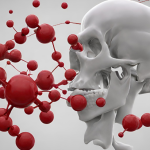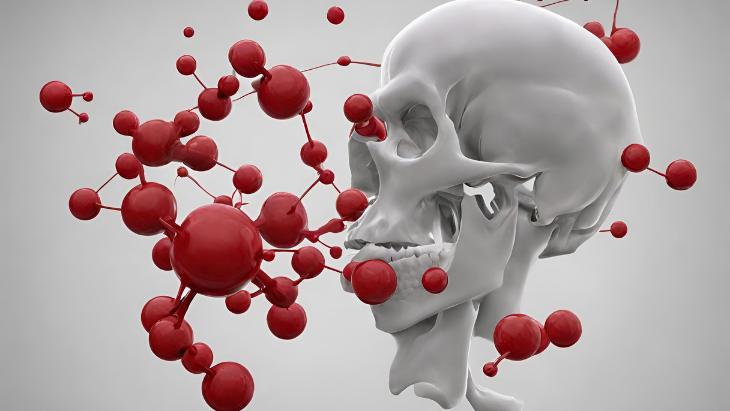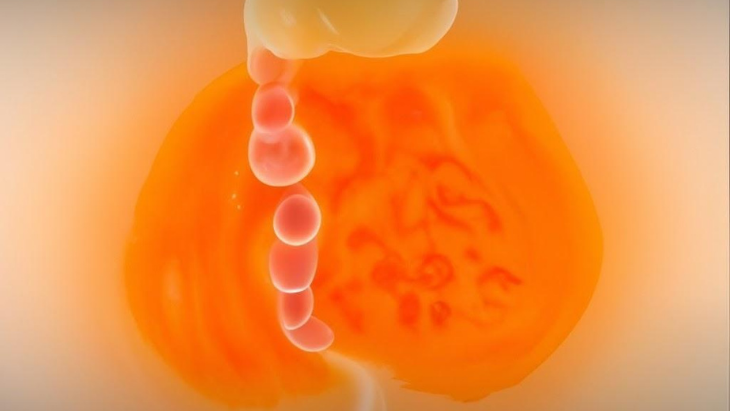Myoglobin is a protein found in muscle cells. It stores oxygen and releases it to the muscles when they need it. Myoglobin is important for muscle contraction and energy production.
Myoglobin what is it?
Myoglobin is a protein found in muscle cells. It is a heme protein, which means it contains a molecule of iron that binds to oxygen. Myoglobin stores oxygen in muscle cells, and it releases that oxygen when the muscles need it for energy.
Myoglobin is important for muscle function. It helps muscles to contract and produce energy. Myoglobin is also involved in the transport of carbon dioxide from the muscles to the lungs.
Here are some additional details about myoglobin:
- Myoglobin is a globular protein that is composed of a single polypeptide chain.
- The iron in myoglobin is bound to a heme group, which is a complex of iron and a porphyrin ring.
- Myoglobin is found in high concentrations in the muscles that require a lot of oxygen, such as the heart and skeletal muscles.
- Myoglobin levels can be increased by exercise and training.
- Myoglobin levels can be decreased by muscle damage or disease.
What İs Myoglobin Used For?
Myoglobin is a protein found in muscle cells. It is used to store oxygen and release it to the muscles when they need it. Myoglobin is important for muscle function, including contraction and energy production.
Here are some specific uses of myoglobin:
- Storage of oxygen: Myoglobin stores oxygen in muscle cells, which allows muscles to access oxygen even when there is not enough oxygen in the blood.
- Release of oxygen: Myoglobin releases oxygen to the muscles when they need it for energy.
- Contraction of muscles: Myoglobin helps muscles to contract by providing oxygen for the production of ATP, which is the energy molecule that muscles use to contract.
- Energy production: Myoglobin is involved in the production of energy in muscles by providing oxygen for the mitochondria, which are the organelles that produce energy in cells.
Myoglobin is found in high concentrations in muscles that require a lot of oxygen, such as the heart and skeletal muscles.
How to increase myoglobin levels
Myoglobin is a protein found in muscle cells. It stores oxygen and releases it to the muscles when they need it. Myoglobin is important for muscle function, including contraction and energy production.
There are a few things you can do to increase your myoglobin levels:
- Exercise regularly. Aerobic exercise, such as running, swimming, or cycling, helps to improve cardiovascular health and increase the amount of oxygen that is delivered to the muscles. Strength training also helps to build muscle mass, which also increases myoglobin levels.
- Eat a healthy diet. Make sure you are getting enough protein, iron, and vitamin B12. Protein is essential for muscle growth and repair. Iron is needed to make hemoglobin, which carries oxygen in the blood. Vitamin B12 is also important for red blood cell production.
- Get enough sleep. Sleep is essential for muscle recovery and growth.
Here are some specific tips for increasing your myoglobin levels:
- Aim for at least 30 minutes of moderate-intensity aerobic exercise most days of the week.
- Include strength training exercises in your workout routine two to three times a week.
- Make sure you are getting at least 0.8 grams of protein per kilogram of body weight each day.
- Eat plenty of iron-rich foods, such as red meat, poultry, fish, beans, and leafy green vegetables.
- Include foods that are good sources of vitamin B12, such as meat, poultry, fish, dairy products, and eggs.
- Get 7-8 hours of sleep each night.
It is important to note that increasing myoglobin levels takes time and effort. Regular exercise and a healthy diet are essential for achieving lasting results.
Here are some additional details about increasing myoglobin levels:
- Exercise increases the size and number of muscle cells. This is because exercise causes muscle cells to break down and rebuild. When muscle cells rebuild, they are larger and contain more myoglobin.
- Strength training helps to build muscle mass. Muscle mass is the amount of muscle tissue in the body. Muscle tissue contains myoglobin, so increasing muscle mass also increases myoglobin levels.
- Protein is essential for muscle growth and repair. Protein is the building block of muscle tissue. When you eat protein, your body breaks it down into amino acids, which are then used to build new muscle tissue.
- Iron is needed to make hemoglobin, which carries oxygen in the blood. When you have low iron levels, your body may not be able to deliver enough oxygen to your muscles.
- Vitamin B12 is also important for red blood cell production. When you have low vitamin B12 levels, your body may not be able to produce enough red blood cells.
How to lower myoglobin levels
Myoglobin is a protein found in muscle cells. It stores oxygen and releases it to the muscles when they need it. Myoglobin levels can be increased by exercise and training, but they can also be lowered by certain conditions or medications.
There are a few things you can do to lower your myoglobin levels:
- Rest. When you rest, your muscles have a chance to recover and repair themselves. This can help to reduce myoglobin levels.
- Avoid strenuous exercise. Strenuous exercise can damage muscles and lead to increased myoglobin levels.
- Take medications. Some medications, such as diuretics and corticosteroids, can help to lower myoglobin levels.
- Treat underlying conditions. If your myoglobin levels are high due to an underlying condition, such as rhabdomyolysis, treating the underlying condition can help to lower myoglobin levels.
Here are some specific tips for lowering your myoglobin levels:
- Get plenty of rest. Aim for at least 7-8 hours of sleep each night.
- Avoid strenuous exercise. If you have high myoglobin levels, it is important to avoid strenuous exercise until your levels have returned to normal.
- Talk to your doctor about medications. Your doctor may prescribe medications to help lower your myoglobin levels.
- Treat underlying conditions. If your myoglobin levels are high due to an underlying condition, such as rhabdomyolysis, it is important to treat the underlying condition.
It is important to note that lowering myoglobin levels takes time and effort. Resting, avoiding strenuous exercise, and treating underlying conditions can help to lower myoglobin levels, but it may take several weeks or months to see results.
Here are some additional details about lowering myoglobin levels:
- Resting helps muscles to recover and repair themselves. When muscles are damaged, they release myoglobin into the blood. Resting gives muscles a chance to heal and reduce myoglobin levels.
- Avoiding strenuous exercise can help to prevent muscle damage. Strenuous exercise can damage muscles and lead to increased myoglobin levels.
- Some medications, such as diuretics and corticosteroids, can help to lower myoglobin levels. Diuretics help to remove excess fluid from the body, which can help to reduce myoglobin levels. Corticosteroids are anti-inflammatory medications that can help to reduce muscle damage.
- Treating underlying conditions can help to lower myoglobin levels. If your myoglobin levels are high due to an underlying condition, such as rhabdomyolysis, treating the underlying condition can help to lower myoglobin levels.
Symptoms of myoglobin deficiency
Myoglobin is a protein found in muscle cells. It stores oxygen and releases it to the muscles when they need it. Myoglobin deficiency is a condition in which the body does not produce enough myoglobin.
The symptoms of myoglobin deficiency can vary depending on the severity of the deficiency. Some common symptoms include:
- Weakness
- Fatigue
- Shortness of breath
- Muscle cramps
- Muscle pain
- Muscle weakness
In severe cases, myoglobin deficiency can lead to rhabdomyolysis, which is a condition in which muscle tissue breaks down and releases myoglobin into the blood. Rhabdomyolysis can be life-threatening and can lead to kidney failure, seizures, and even death.
Causes of myoglobin deficiency
Myoglobin deficiency can be caused by a number of factors, including:
- Genetic conditions
- Nutritional deficiencies
- Medications
- Infections
- Injuries
Diagnosis of myoglobin deficiency
Myoglobin deficiency can be diagnosed with a blood test. The blood test will measure the levels of myoglobin in the blood.
Treatment of myoglobin deficiency
The treatment for myoglobin deficiency depends on the underlying cause. In some cases, no treatment is necessary. In other cases, treatment may include:
- Medications to increase myoglobin levels
- Nutritional supplements to improve muscle function
- Physical therapy to help improve muscle strength and endurance
Prevention of myoglobin deficiency
There is no sure way to prevent myoglobin deficiency, but there are some things you can do to reduce your risk, including:
- Eating a healthy diet that is rich in protein, iron, and vitamin B12
- Getting regular exercise
- Avoiding strenuous exercise
- Getting enough sleep











